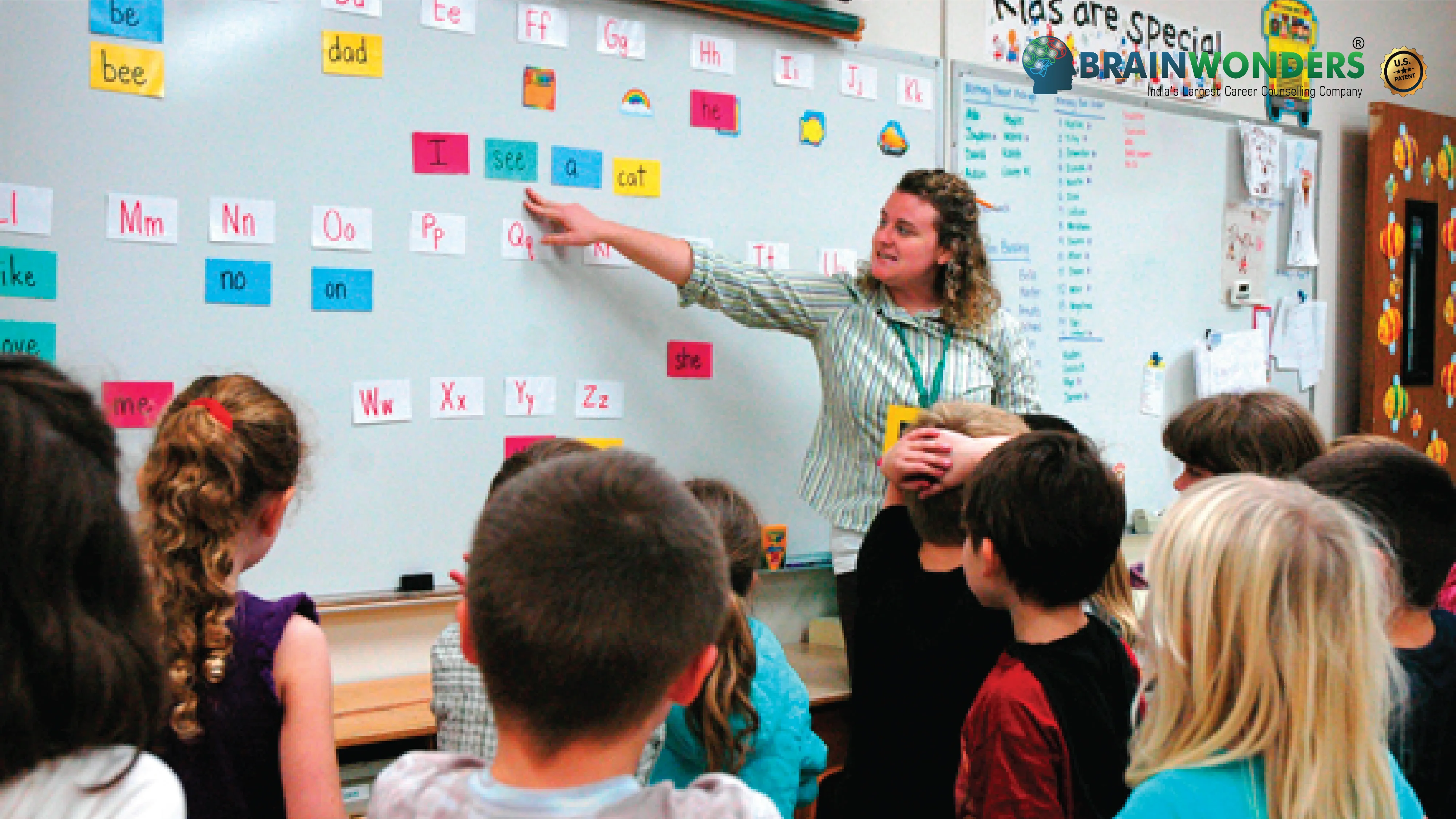How to become an Instructional Coordinator
Overview, Courses, Exam, Colleges, Pathways, Salary

Overview
Who is Instructional Coordinator ?
An instructional coordinator, also known as a curriculum specialist or instructional supervisor, is a professional in education who plays a crucial role in developing and improving educational programs. They work closely with teachers, administrators, and other stakeholders to ensure that the curriculum meets the educational objectives and standards the school or district sets.
Instructional coordinators are responsible for designing and implementing instructional strategies, evaluating educational materials, and providing professional development opportunities for teachers. They analyze student performance data to identify areas of improvement and develop targeted interventions. Additionally, they may collaborate with teachers to create lesson plans, assess teaching methods, and integrate technology into the classroom.
Instructional coordinators play a pivotal role in enhancing the overall quality of education by supporting teachers in delivering effective instruction and promoting student achievement. They combine their expertise in curriculum development, instructional techniques, and educational research to facilitate a dynamic and engaging learning environment.
Typical day at work
What does Instructional Coordinator do?
- Curriculum Development: They collaborate with teachers and administrators to design and update curriculum materials, ensuring educational standards and objectives are aligned. They research and select appropriate educational resources and materials for effective teaching and learning.
- Instructional Planning: Instructional coordinators assist teachers in developing comprehensive lesson plans and instructional strategies that cater to the diverse needs of students. They guide effective teaching methods, learning activities, and assessment techniques.
- Professional Development: They organize and deliver professional development sessions and workshops for teachers. These sessions focus on improving instructional techniques, incorporating new teaching technologies, and staying updated with educational research and best practices.
- Teacher Support: Instructional coordinators work closely with teachers to provide guidance, feedback, and support. They observe classroom instruction, offer constructive feedback, and suggest improvements to enhance teaching effectiveness.
- Assessment and Data Analysis: They analyze student performance data and assessment results to identify strengths and weaknesses in the curriculum and instructional methods. Based on this analysis, they develop strategies and interventions to address student needs and improve overall academic outcomes.
- Collaboration and Coordination: Instructional coordinators collaborate with school administrators, teachers, and other educational professionals to ensure a cohesive and coordinated approach to curriculum implementation. They may participate in curriculum committees and engage in collaborative decision-making processes.
Abilities and Aptitude needed
What are the skills, abilities & aptitude needed to become Instructional Coordinator?
- Assertive Communication: Excellent communication skills are vital for instructional coordinators. They must effectively convey information, collaborate with teachers and administrators, provide feedback, and deliver professional development sessions.
- Curriculum Development Expertise: Instructional coordinators should deeply understand curriculum design and development. They need to know educational standards, instructional strategies, and the selection and evaluation of educational resources.
- Instructional Leadership: The ability to provide instructional leadership is crucial. Instructional coordinators should be able to guide and support teachers, inspire them to enhance their instructional practices and foster a positive learning culture.
- Analytical and Data-Driven Approach: Instructional coordinators should possess strong analytical skills to assess student performance data, identify trends, and make data-driven decisions. They need to analyze assessment results to evaluate the effectiveness of instruction and develop targeted interventions.
- Collaboration and Teamwork: Instructional coordinators work closely with various stakeholders, including teachers, administrators, and other professionals. Collaboration skills are essential to foster positive relationships, facilitate teamwork, and coordinate efforts to achieve common goals.
- Flexibility and Adaptability: The educational landscape constantly evolves, and instructional coordinators must adapt to changes. They should be open to new ideas, willing to explore innovative teaching approaches and technologies and adjust instructional plans based on student needs and emerging trends.
- Problem-Solving Skills: Instructional coordinators face challenges related to curriculum development, instructional delivery, and student performance. They should possess strong problem-solving skills to identify issues, develop solutions, and implement strategies to overcome obstacles.
- Knowledge of Educational Technology: Familiarity with educational technology tools and their integration into instructional practices is advantageous. Instructional coordinators should be able to leverage technology to enhance teaching and learning experiences.
- Organisational and Time Management Skills: Instructional coordinators often juggle multiple tasks and responsibilities. Practical organizational and time management skills are necessary to prioritize tasks, meet deadlines, and manage projects efficiently.
- Continuous Learning: Instructional coordinators should be passionate about learning and stay updated with the latest research, educational trends, and best practices. They should be committed to professional growth and seek opportunities for ongoing development.
Salary
Salary for Instructional Coordinator?
The salary of An Instructional Coordinator is as follows :
- Minimum Monthly Salary: Entry-level Instructional Coordinators or those in junior positions can expect a monthly salary ranging from INR 25,000 to INR 50,000. This salary range is typical for individuals starting their careers in instructional coordination.
- Maximum Monthly Salary: Experienced and highly skilled Instructional Coordinators, especially those working with established educational institutions or overseeing the development of comprehensive curriculum plans, have the potential to earn a monthly salary ranging from INR 1,20,000 to INR 2,50,000 or even more.
- Annual Salary: The annual salary of an Instructional Coordinator can vary widely, ranging from INR 3,00,000 to several lakhs or more. This range is influenced by years of experience, proficiency in curriculum development and instructional strategies, and the ability to implement effective educational programs.
- Highest Position and Scope: The peak of achievement for Instructional Coordinators often comes when they attain senior coordination positions, lead curriculum development teams, or contribute to educational policy planning. Accomplished Instructional Coordinators with a deep understanding of pedagogical methods, strong organizational skills, and a proven record of enhancing educational programs can command significant recognition and compensation. The scope for Instructional Coordinators is promising as schools and educational institutions continually seek to improve teaching methods and enhance student learning outcomes. As education evolves to meet modern needs and technology is integrated into classrooms, Instructional Coordinators play a pivotal role in designing effective curriculum plans, providing teacher training, and ensuring that educational content aligns with standards and best practices. Their efforts contribute to the quality of education and the success of students' academic journeys.
Pathways
How to become an Instructional Coordinator?
Entrance Exam
Entrance Exam for Instructional Coordinator ?
Courses
Which course I can pursue?
Best Colleges
Which are the best colleges to attend to become an Instructional Coordinator?
Industries
Which Industries are open for Instructional Coordinator?
- Public and Private Schools: Instructional coordinators are commonly found in public and private elementary, middle, and high school schools. They work closely with teachers and administrators to develop and improve the curriculum, instructional strategies, and assessment methods.
- School Districts: School districts employ instructional coordinators to oversee curriculum development and implementation across multiple schools within the community. They provide guidance and support to teachers, conduct professional development sessions, and ensure alignment with educational standards.
- Higher Education Institutions: Colleges and universities often employ instructional coordinators in their education departments or academic support services. They work with faculty to design and revise curricula, develop instructional materials, and support teaching and learning initiatives.
- Educational Nonprofits and Organizations: Nonprofit organizations focused on education, such as research institutes, curriculum development centers, and educational foundations, may hire instructional coordinators. These roles often involve working on educational projects, conducting research, and providing expertise in curriculum design and instructional strategies.
- Educational Technology Companies: Instructional coordinators can find opportunities in companies that develop educational technology tools and platforms. They may work on integrating technology into instructional practices, providing training and support to teachers, and collaborating with the development team to enhance educational products.
- Government and Education Agencies: Government agencies, such as departments of education or educational assessment bodies, may employ instructional coordinators to contribute to curriculum development, standards alignment, and educational policy initiatives.
- Online and Distance Learning: With the rise of online and distance learning, instructional coordinators are increasingly needed in virtual schools, online education platforms, and e-learning companies. They play a crucial role in designing online courses, creating interactive learning materials, and supporting remote teaching and learning.
internship
Are there internships available for Instructional Coordinator?
Internships specifically tailored for instructional coordinators may not be as common as internships for other roles in the field of education. However, there may still be opportunities for aspiring instructional coordinators to gain valuable experience through internships or similar programs. Here are some possibilities to consider:
- School District Internships: Some school districts or educational institutions may offer internships or assistantships that involve working closely with instructional coordinators. These opportunities may include assisting with curriculum development, observing instructional practices, or supporting professional development initiatives.
- Education Nonprofit Internships: Nonprofit organizations focused on education may offer internships that involve working on curriculum development projects, researching instructional practices, or assisting with teacher training programs. These experiences can provide valuable insights into the role of instructional coordinators.
- Educational Technology Companies: Internships with companies that develop educational technology tools or platforms may offer exposure to integrating technology into instructional practices. These opportunities can provide valuable insights into the use of digital resources and assist in developing technological skills relevant to instructional coordination.
- University Internships: Some universities with education departments or research centers may offer internships, or research assistant positions focused on curriculum development or instructional design. These internships can provide hands-on experience and exposure to current research and trends in education.
While internships targeting instructional coordinators may not be widely available, aspiring instructional coordinators can explore related opportunities in educational settings, nonprofits, or technology companies. It's important to actively search for internships and network with professionals in the field to discover potential opportunities and gain practical experience relevant to the role of an instructional coordinator.
Career outlook
What does the future look like for Instructional Coordinator?
The future for instructional coordinators is promising and dynamic. Advancements in technology will continue to shape their role, focusing on integrating innovative tools and platforms into teaching and learning. They will embrace personalized learning approaches, leveraging data analysis to tailor instruction to individual student needs. Blended and online learning models will become increasingly prevalent, requiring instructional coordinators to support the seamless integration of digital resources. Collaboration and partnerships will be essential as they work with stakeholders to create inclusive and equitable learning environments. Professional development will evolve, offering online courses and virtual coaching to support teachers' growth. Instructional coordinators will drive curriculum innovation, incorporating interdisciplinary approaches and real-world applications. As research and best practices inform their work, adaptive assessment methods will provide real-time feedback on student progress. In summary, instructional coordinators will remain at the forefront of educational transformation, ensuring engaging and practical instruction for future learners.






